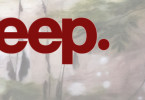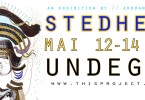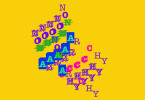Let’s start with a question. Has digital media killed its archaic enemy once and for all? There are a lot of puritans out there that will happily bore you with long diatribes concerned with the death of print and how the evil web machine has robbed journalism, in all its forms, of its innocence. With this, quite obviously, not being true in at least ten different ways it seems that sensationalism is the default setting for those yearning for a supposedly bygone era. But do they have a point?
Let’s look at some boring facts. The magazine industry is worth £8 Billion in the UK alone. This is about 25 percent more than TV and radio industries combined. The newspaper industry pulls in a respectable £5 Billion. Even though the worth of the newspaper is in decline you can’t hide from the fact that it’s still huge business. If you really need to point your blame finger anywhere here then make sure it lands squarely on Rupert Murdoch and his Galactic News Corporation. Invading the privacy of celebrities and murder victims to sell newspapers to idiots is not journalism. Its plain old fiction pedalled by the kind of vultures who would happily sell their relatives most intimate details if they thought it would please their soul hungry master.
So as we can see, the dawn of the digital age has not quelled our nation’s interest in the printed word. However, more and more of the big publications are starting to offer there content for ipad download and whilst this may be a novelty to those who can afford these wondrous gadgets, the rest of us paupers can only look on in digital envy. Or, perhaps not. Call me a traditionalist but as someone who’s obsessed with the magazine format I enjoy nothing more than holding that tangible rag, flicking through it for the first time and mentally placing each article or review in the order in which they will be digested. To me, that can’t be replaced by any digital witchcraft and let’s not forget that magazine’s or books don’t need plugging into the wall periodically to unlock their secrets.
Let’s move on because we must realise that this analogue/digital argument stretches way beyond the confines of magazine journalism. Film, for instance, is currently in the biggest transitional period since Al Jolson uttered the first line of spoken word in the Jazz Singer in 1927. Of course it’s not really film anymore. This, along with the music industry, is the digital age’s true arena where the ridiculous advances in technology have allowed movies to be made for a fraction of the price it used to cost. Most of the multiplexes are getting rid of their old 35mm projectors in favour of one’s that resemble nothing more than itunes attached to a really big light bulb. There are traditionalists to be found here also but significantly more well known and important ones. Quentin Tarantino has recently said that if he is unable to show his movies on the 35mm format then he will retire from movie making altogether to write novels or film literature. The point I’m trying to make here is our generations cinematic, enfant terrible is seriously considering giving up what he sees as a dying art in favour of another, print. And you can be sure that whatever he does write will not be available for ipad download. He may be our biggest artistic casualty in the battle of tradition over progress and definitely one that should not be chalked down to collateral damage.
As mentioned before the music industry has again enjoyed the spoils of technological advances. In terms of production, like film, music making at a professional level has become accessible to almost anyone. This hasn’t been ignored by the professionals either. Damon Albarn recorded The Fall entirely on his ipad and due to how much it didn’t cost him he was in the position to offer it for free. The music moguls are still playing catch-up and, unfortunately for them, they concentrated on the wrong digital enemy. Whilst they were looking one way, damning the rise of free downloading and file-sharing the kids were learning how to use their computers powers for good and creating instead of stealing. To say that they missed a trick would be a vast understatement and a credit to their money orientated priorities.
It is possible to move with the times and reinvent your artistic output. The art world is often the very centre of the old versus new debate and boasts the fiercest of conservatives. Looking at the example of David Hockney raises all sorts of questions around an artist’s medium of choice and willingness to pillage new technology in an effort to create relevance instead of complying with the rules of convention. At seventy one years old Hockney is now displaying masterworks created on ipads and iphones to great acclaim. And what of these questions being raised? I can think of a good one. Does it matter which tools are used if the results are spectacular?
It’s interesting to look at well known cases of this argument but what of the masses? Taking to the internet to share whatever it is you create is obviously the easiest way to promote your work. It covers all mediums and its accessibility is both its defining feature and largest downfall. Blogging sites like Tumblr have allowed the creation of online communities giving instant feedback to each other which, as anyone involved in the business of creating will tell you, is invaluable. When there’s no money involved responses tend to be a tad more honest. The downfall is the amount of sifting needed before you find something to your tastes.
What is there to take from all of this? Will we end up inhabiting a world where that foul, skeletal beast Murdoch offers our privacy as an App? I’m not sure and even though I would love to think of myself as a puritan it would only make me a hypocrite. I don’t have a staff writing job at a top magazine (or any magazine for that matter) so my only avenue of reaching an audience is using the internet and, more specifically, the world of blogging. It’s a medium that gets a bad reputation seemingly based on the lack of an editorial process but for unqualified, opinion vendors like myself it’s our only choice. Digital media has a definite place in our constantly evolving, cultural psyche but whilst this may eventually replace some of its many forms the one that it doesn’t have the power (or need) to replace is the printed word.
_
PRINT MARW AC ACHOS RHYFEDD Y PIWRITANIAID
Dewch inni ddechrau gyda chwestiwn. Ydi’r cyfrwng digidol wedi lladd ei arch-elyn hynafol unwaith ac am byth? Mae ‘na lawer o biwritaniaid allan fanna fydd yn falch iawn o’ch syrffedu wrth fytheirio’n hirwyntog ynglŷn â marwolaeth y gair printiedig a sut y bu i beiriant dieflig y we amddifadu newyddiaduraeth, yn ei holl ffurfiau, o’i ddiniweidrwydd. Gan nad ydi’n hyn yn wir, wrth reswm, am o leia’ ddeg o wahanol resymau, mae’n ymddangos mae ei gor-ddweud hi ydi’r dull arferol i’r rheini sy’n hiraethu am yr oes honedig a fu. Ond tybed a oes ganddyn nhw bwynt?
Dewch inni edrych ar ychydig o ffeithiau diflas. Mae’r diwydiant cylchgronau’n werth £8 Biliwn yn y DU yn unig. Mae hyn oddeutu 25 y cant yn fwy na’r diwydiant radio a theledu gyda’i gilydd. Mae’r diwydiant papurau newydd yn creu rhyw £5 Biliwn ddigon parchus. Er bod gwerth y papur newydd bellach ar ei lawr, does dim cuddio rhag y ffaith ei fod yn parhau’n fusnes mawr. Os oes raid anelu bys bai fama rhywle, yna gwnewch yn sicr mai at ddrws Rupert Murdoch a’i Gorfforaeth Newyddion Galaethol y caiff ei anelu. Nid newyddiaduraeth ydi ymosod ar breifatrwydd enwogion a dioddefwyr llofruddiaeth er mwyn gwerthu papurau newydd i ffyliaid. Dydi e ddim mwy na hen chwedleua yn cael ei bedlera gan y math o ‘sglyfaeth fyddai’n fodlon gwerthu manylion mwya’ personol eu perthnasau petai’n debygol o blesio meistr sy’n chwantu blas enaid byw.
Felly, fel y gwelwn, dydi gwawrio’r oes ddigidol heb ballu diddordeb ein pobl yn y gair printiedig. Fodd bynnag, mae mwy a mwy o’r cyhoeddiadau mawrion yn dechrau cynnig eu cynnwys i’w lawrlwytho ar ipad a thra pery hyn yn newyddbeth i’r rhai hynny all fforddio’r teclynnau rhyfeddol yma, dim ond syllu o hirbell mewn eiddigedd digidol fedrwn ni’r gweddill difreintiedig, tlawd ei wneud. Neu, bosib ddim. Galwch fi’n draddodiadol, ond fel rhywun sy wedi gwirioni ar fformat cylchgrawn, does dim byd gwell gen i na chydio mewn rhacsyn alla i ei gyffwrdd, yn bodio trwyddo am y tro cyntaf gan leoli yn feddyliol pob erthygl neu adolygiad yn ôl y drefn dwi’n dymuno’u blasu. I mi, nid oes modd disodli hynny gydag unrhyw ddewiniaeth ddigidol a chofiwch nad oes raid plygio cylchgronau na llyfrau i wal o dro i dro er mwyn cael datgloi eu cyfrinachau.
Dewch inni symud ‘mlaen, gan fod rhaid inni sylweddoli fod y ddadl ddigidol/analog hon yn ymestyn ‘mhell y tu hwnt i ffiniau newyddiaduraeth y cylchgrawn. Mae ffilm, er enghraifft, yn mwynhau ei chyfnod mwya’ trawsnewidiol ers i Al Jolson yngan y frawddeg lafar gyntaf yn y Jazz Singer ym 1927. Wrth gwrs, nid ffilm ydi e go iawn bellach. Dyma ichi, ynghyd â’r diwydiant cerddoriaeth, gwir arena’r oes ddigidol, lle mae’r datblygiadau hurt ryfeddol mewn technoleg wedi caniatáu cynhyrchu ffilmiau am fawr mwy na thamaid y gost a fu. Mae’r rhan fwya’ o’r sinemâu aml-sgrîn yn cael gwared â’u hen daflunwyr 35mm o blaid rhywbeth sy’n edrych fawr mwy o beth nag itunes wedi’i gysylltu at fylb golau go fawr. Fe ddewch chi o hyd i’r traddodiadwyr yma hefyd ond rhai arwyddocaol o adnabyddus a phwysig. Fe ddywedodd Quentin Tarantino’n ddiweddar y byddai’n debygol o ymddeol o gynhyrchu ffilmiau yn llwyr a mynd ati i sgwennu nofelau neu lenyddiaeth ffilm pe na chaiff ddangos ei ffilmiau yn y fformat 35mm. Y pwynt dwi’n ceisio’i wneud fan hyn ydi fod enfant terrible, sinematig, ein cenhedlaeth ni, o ddifri’n ystyried rhoi’r gorau i’r hyn mae’n ei weld fel celfyddyd sy’n darfod, er mwyn ffafrio un arall, sef print. Ac fe ellir eich sicrhau na fydd unrhyw beth a fydd yn ei sgwennu ar gael i’w lawrlwytho ar ipad. Fe all mai fe fydd y golled artistig fwya’ amlwg ym mrwydr traddodiad yn erbyn cynnydd ac yn bendant yn un na ddylid ei gyfri’n ddim mwy na difrod ymylol.
Fel y soniais i’n gynharach, mae’r diwydiant cerddoriaeth wedi mwynhau manteision datblygiadau technolegol. Yn nhermau cynhyrchu, mae creu cerddoriaeth ar lefel broffesiynol, fel ffilm, wedi dod o fewn cyrraedd pawb bron â bod. Chafodd hyn mo’i golli gan y proffesiynol ‘chwaith. Recordiwyd The Fall gan Damon Albarn yn gyfangwbl ar ei ipad ac oherwydd yr arbedion a olygodd hyn iddo, roedd mewn sefyllfa i’w gynnig yn rhad ac am ddim. Mae mawrion cerddoriaeth wrthi’n ceisio dal i fyny ac, yn anffodus iddyn nhw, wedi dewis y gelyn digidol anghywir. Tra’u bod nhw’n edrych i un cyfeiriad, yn bytheirio twf lawrlwytho a rhannu ffeiliau rhad ac am ddim, roedd yr ieuenctid wrthi’n dysgu defnyddio galluoedd eu cyfrifiaduron er daioni, gan greu yn hytrach na dwyn. Mae datgan eu bod wedi methu tric fanna yn amlwg a dweud y lleia’, ac yn tystio i’w blaenoriaethu ariangar.
Y mae hi’n bosib symud gyda’r amserau ac ailddyfeisio’ch cynnyrch artistig. Yn aml iawn, ym myd celf y gwelir calon y ddadl rhwng yr hen a’r newydd ac yno y ceir hyd i’r geidwadaeth fwya’ bybyr. Mae edrych ar esiampl David Hockney yn codi pob math o gwestiynau ynglŷn â dewis cyfrwng yr artist a’i barodrwydd i reibio’r dechnoleg newydd mewn ymgais i greu perthnasedd yn hytrach na cheisio cydymffurfio â rheolau confensiwn. Yn saith deg ac un flwydd oed, mae Hockney bellach yn arddangos campweithiau a grëwyd ar ipadiau ac iffonau, a hynny i ganmoliaeth fawr. A beth am y cwestiynau a godir yma? Fedra i feddwl am un da. Ydi o’r ots pa gyfrwng a ddefnyddir os ydi’r canlyniadau’n drawiadol?
Mae’n ddiddorol edrych ar achosion adnabyddus yn y ddadl hon ond beth am drwch y boblogaeth? Dewis mynd am y rhyngrwyd er mwyn rhannu beth bynnag a grëwyd gennych ydi’r ffordd orau i hyrwyddo’ch gwaith, mae’n amlwg. Mae’n ymwneud â phob cyfrwng a’i hygyrchedd ydi nid yn unig ei rhagoriaeth ond yn faen tramgwydd hefyd. Mae safleoedd blogio megis Tumblr wedi agor y ffordd i greu cymunedau ar-lein sy’n rhoi adborth chwim i’w gilydd sydd, fel y dywed unrhyw un sy wrthi yn y busnes creadigol wrthych, yn amhrisiadwy. Yr ochr negyddol ydi’r swmp o ddeunydd sy raid ei bysgota cyn ichi gael hyd i rywbeth at eich dant.
Be wnawn ni o hyn i gyd? A fyddwn ni yn y pendraw yn byw mewn byd lle bydd y bwystfil ffiaidd, sgerbydol hwnnw, Murdoch, yn cynnig preifatrwydd fel App? Dwn i ddim ac er mod i’n hoffi ystyried fy hun yn biwritan, dim ond ngwneud i’n rhagrithiwr fyddai hynny. Does gen i ddim swydd sgwennu ar gylchgrawn amlwg (nag unrhyw gylchgrawn o ran hynny) felly f’unig lwybr i gyrraedd cynulleidfa ydi defnyddio’r rhyngrwyd ac i fod yn fwy penodol, y byd blogio. Mae’n gyfrwng sy’n derbyn enw drwg sy’n deillio, wrth ei golwg, o ddiffyg proses golygyddol ond i werthwr sylwadau digymhwyster fel fi, dyma’n hunig ddewis. Mae gan y cyfrwng digidol le pendant yn esblygiad di-baid ein gwead diwylliannol, ond tra bo hi’n ddigon posib y bydd yn disodli sawl ffurf cyfarwydd inni, yr un nad oes ganddo’r grym (na’r angen) ei ddisodli, ydi’r gair ar brint.
Phil Watson







